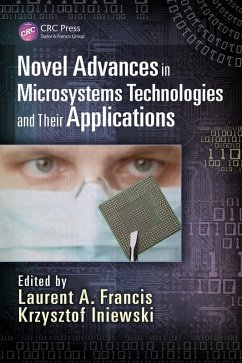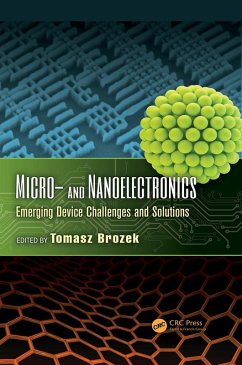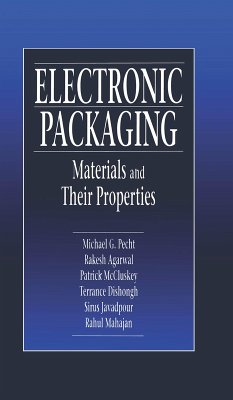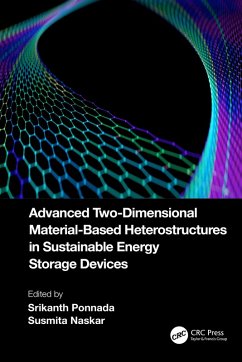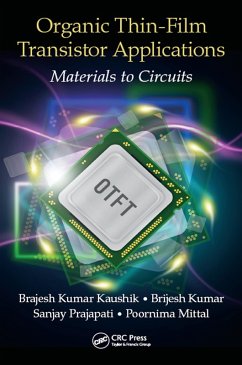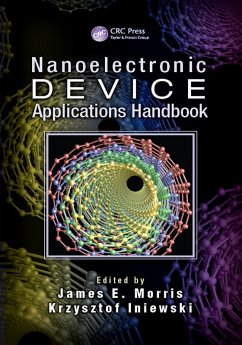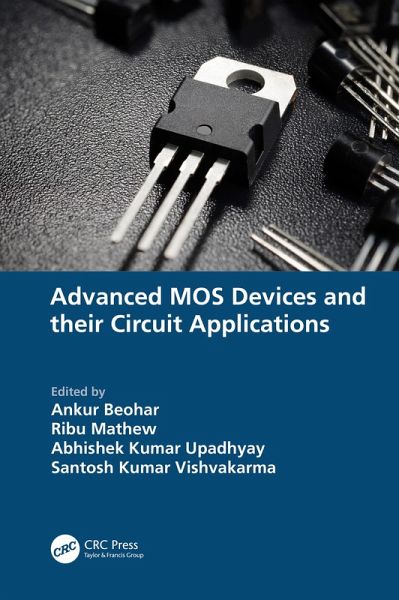
Advanced MOS Devices and their Circuit Applications (eBook, ePUB)
Versandkostenfrei!
Sofort per Download lieferbar
49,95 €
inkl. MwSt.
Weitere Ausgaben:

PAYBACK Punkte
25 °P sammeln!
This text comprehensively discusses the advanced MOS devices and their circuit applications with reliability concerns. Further, an energy-efficient Tunnel FET-based circuit application will be investigated in terms of the output voltage, power efficiency, energy consumption, and performances using the device circuit co-design approach.The book: Discusses advanced MOS devices and their circuit design for energy- efficient systems on chips (SoCs) Covers MOS devices, materials, and related semiconductor transistor technologies for the next-generation ultra-low-power applications Examines the use ...
This text comprehensively discusses the advanced MOS devices and their circuit applications with reliability concerns. Further, an energy-efficient Tunnel FET-based circuit application will be investigated in terms of the output voltage, power efficiency, energy consumption, and performances using the device circuit co-design approach.
The book:
The volume provides detailed discussions of DC and analog/RF characteristics, effects of trap-assisted tunneling (TAT) for reliability analysis, spacer-underlap engineering methodology, doping profile analysis, and work-function techniques. It further covers novel MOS devices including FinFET, Graphene field-effect transistor, Tunnel FETS, and Flash memory devices. It will serve as an ideal design book for senior undergraduate students, graduate students, and academic researchers in the fields including electrical engineering, electronics and communication engineering, computer engineering, materials science, nanoscience, and nanotechnology.
The book:
- Discusses advanced MOS devices and their circuit design for energy- efficient systems on chips (SoCs)
- Covers MOS devices, materials, and related semiconductor transistor technologies for the next-generation ultra-low-power applications
- Examines the use of field-effect transistors for biosensing circuit applications and covers reliability design considerations and compact modeling of advanced low-power MOS transistors
- Includes research problem statements with specifications and commercially available industry data in the appendix
- Presents Verilog-A model-based simulations for circuit analysis
The volume provides detailed discussions of DC and analog/RF characteristics, effects of trap-assisted tunneling (TAT) for reliability analysis, spacer-underlap engineering methodology, doping profile analysis, and work-function techniques. It further covers novel MOS devices including FinFET, Graphene field-effect transistor, Tunnel FETS, and Flash memory devices. It will serve as an ideal design book for senior undergraduate students, graduate students, and academic researchers in the fields including electrical engineering, electronics and communication engineering, computer engineering, materials science, nanoscience, and nanotechnology.
Dieser Download kann aus rechtlichen Gründen nur mit Rechnungsadresse in A, B, BG, CY, CZ, D, DK, EW, E, FIN, F, GR, HR, H, IRL, I, LT, L, LR, M, NL, PL, P, R, S, SLO, SK ausgeliefert werden.





